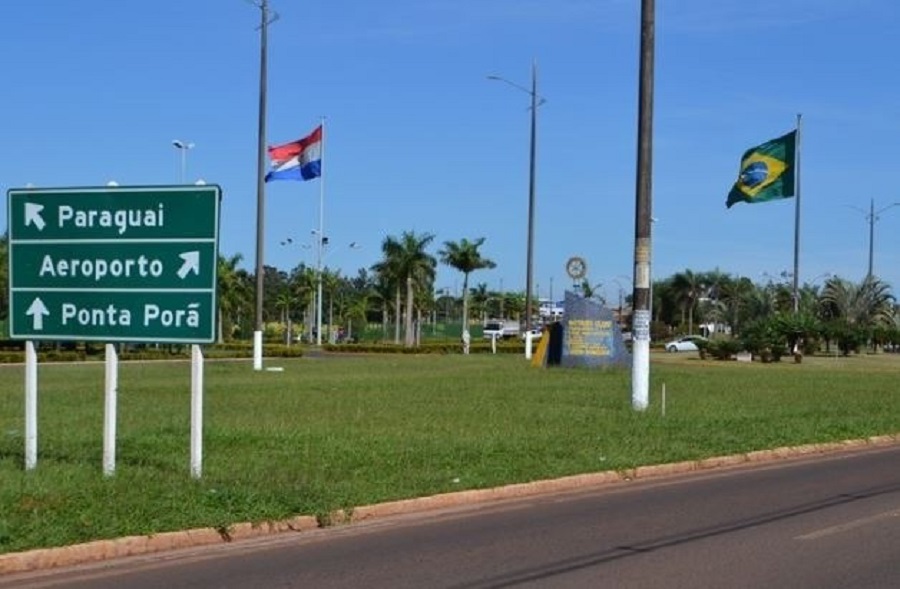RIO DE JANEIRO, BRAZIL – Paraguayan police are investigating the connection between the killings and the actions of the PCC (First Command of the Capital, largest Brazilian criminal organization). The crimes involve attacks against politicians, a police officer, and a suspected police informant in an investigation that led to the arrest of members of the criminal gang’s leadership in March this year.
The matter was discussed yesterday at a meeting between authorities from both countries at the Paraguayan National Police Command Center, which established the beginning of a joint action plan against criminal groups on the border.

“The meeting was intended to make the connection with the Paraguayan authorities and to say that we are in contact with the Brazilian government. These cooperation agreements must be established between the two governments. The State Police took part because it is the first presence of the state on the border line,” said the Ponta Porã State Police sub-commander Major Luciane Gonçalves Camiato.
“It was only a first meeting with the people on the front line. But when we talk about fighting organized crime, negotiations involve the governments of both countries. Then, negotiations for a more prolonged action to fight drug trafficking will be discussed,” she said.
Mato Grosso do Sul Civil Police Chief Marcos Werneck, who also attended the meeting, stressed the significance of an agreement – particularly for validating evidence in investigations against organized crime.
“During the meeting, we particularly discussed how to reach an agreement [between the governments of Brazil and Paraguay] that will facilitate cooperation between police forces. There are legal aspects that we face to fight organized crime. Questions were raised about the need for an agreement between the countries that will facilitate sharing information and evidence,” Werneck said.
The Ministry of Justice said it had signed an agreement with the Paraguayan government in June this year to “regularize and optimize” border security between the countries in an effort to fight organized crime. However, it said it was unaware of a new pact between the two countries.
REINFORCED POLICING ON THE BORDER
Ponta Porã State Police commander Lieutenant Colonel Ozevaldo Santos de Melo explained that policing in the city on the border with Paraguay more than doubled after the recent wave of murders, with the reinforcement of the Department of Border Operations, Civil Police and Highway Police. But he does not disclose the number of personnel deployed in the municipality for security reasons.
“Given the killings in recent days, Brazil and Paraguay began to discuss increased integration between security forces, planning a set of actions to fight organized crime,” he said.
“THE PCC IS A PROBLEM FOR BOTH COUNTRIES”
Specialized in fighting organized crime on the border between Brazil and Paraguay, retired federal judge Odilon Oliveira said that an agreement of this kind needs the participation of the federal governments of both countries. But he criticizes the delay in making a decision.
“There must be permanent joint action with exchange of information, facilitating free access of police officers. But this kind of action should have been in place for at least 15 years. Organized crime has greatly increased. The PCC today is a problem for both countries,” he says. “The federal government needs to open its eyes to the actions of organized crime on the border.”
WAVE OF KILLINGS IN THE PAST 5 DAYS
The wave of murders began last Friday, October 8, when city councilor Farid Charbell Badaoui Afif was gunned down in Ponta Porã (Mato Grosso do Sul). The next day, a shooting left 4 dead outside a nightclub in Pedro Juan Caballero.
Another attack occurred on Tuesday night, October 12, when the body of Federal Police officer Hugo Ronaldo Acosta was found inside a car in Pedro Juan Caballero, Paraguay. According to the newspaper La Nación, the gunfire struck a house, where a note was left in Portuguese: “Stop oppressing the people inside because we’re going to get you like we got your comrades before,” it reads.
On Wednesday, October 13, shooters on motorcycles attacked a group of people in Capitán Bado, a Paraguayan city near Pedro Juan Caballero, leaving 1 dead and 2 wounded. According to Paraguayan police, the target of the attack was city councilor Ismael Valiente. Shot in the face and arm, the politician was rushed to a hospital, where he is in a stable condition.

